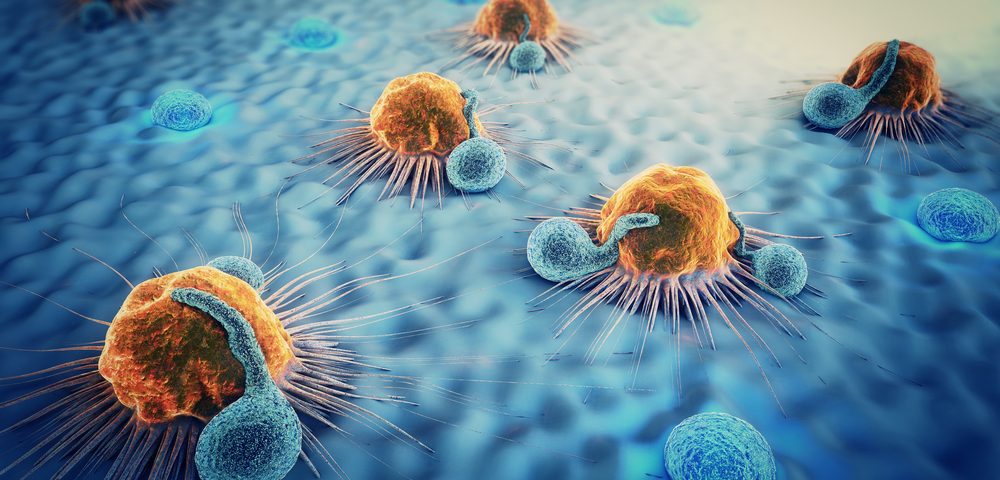Aprea Therapeutics‘ APR-246 stabilizes the tumor suppressor protein p53, boosting responses to checkpoint blockade immunotherapies in mouse models of melanoma and colorectal cancer, a study says.
Findings were announced in a press release and featured on the poster, “TP53-stabilization with APR-246 enhances antitumor effects of immune checkpoint blockade in preclinical models,” presented recently at the 2019 American Association for Cancer Research (AACR) Annual Meeting in Atlanta.
The tumor suppressor protein p53, also known as TP53, plays an important role in regulating several aspects of anti-tumor immune responses, including the growth of T-cells (cells with the ability to kill cancer cells and other threats), and the presentation of antigens (substances seen as threats by the immune system) to immune cells.
Mutations in TP53, the gene that provides instructions to make p53, are the most common types of genetic mutations found in human cancers — estimated to occur in approximately 50% of all tumors. These mutations are normally associated with cancer resistance to therapy, and correlate with poor clinical outcomes.
“Stabilization of TP53 could therefore alter the immune tumor microenvironment, enabling the immune system to target tumor cells more effectively,” the researchers, from Memorial Sloan Kettering Cancer Center, said in the study’s abstract.
Aprea’s lead compound, APR-246, is a molecule designed to restore the normal structure and reactivate mutant forms of p53, to stimulate the elimination of malignant cancer cells.
The researchers analyzed the anti-tumor response triggered by APR-246 alone, or in combination with immunotherapies, in mouse models of melanoma (B16 model) and colorectal cancer (MC38 model).
Results showed that using APR-246 alone in mice with melanoma did not lead to statistically significant differences in tumor growth or animal survival. However, it seemed to trigger an immune response against the tumor, characterized by the infiltration of immune cells harboring a pattern of gene expression consistent with the stabilization and reactivation of p53.
However, a combination of APR-246 and an anti-PD-1 antibody led to a significant delay in tumor growth and increased the lifespan of mice with melanoma, compared with animals treated with APR-246 or anti-PD-1 alone.
In mice with colorectal cancer, the combination also led to significant improvements in anti-tumor response. Analysis of the tumor microenvironment showed that even though treatment reduced the growth of immune cells, it also increased the ability of T-cells to attack and eliminate cancer cells more effectively.
Finally, the researchers found that a triple combination therapy of APR-246, anti-PD-1, and anti-CTLA-4 led to an even stronger inhibition of tumor growth in mice with melanoma.
“Our studies support a role for restoring TP53 in the tumor microenvironment and provide evidence that reactivation of TP53 by APR-246 can enhance anti-tumor immune responses and inhibit tumor growth in preclinical models,” the researchers concluded.


